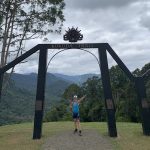At the end of April 2024, I’ve been invited to give three presentations at the Alzheimer’s Disease International (ADI) conference in Krakow, Poland.
The goals of ADI are:
- To educate people about how to reduce their risk of Alzheimer’s
- To ensure everyone receives a timely diagnosis
- To promote the highest quality care
- To support research that will lead to cure
- To campaign for better dementia policies from governments
Our brain is constantly changing in response to everything we do, think and experience, and our day-to-day choices — about what we eat, where we live, whether we exercise, how we manage stress, how much we sleep, how we interact with people, and the work we do — play a huge role in determining the health of our brain. In fact, brain alterations leading to Alzheimer’s can start 30 years before we get any symptoms.
To help young people become aware of how their lifestyles impact their brain function, ADI is running an international research study called The Next Generation Brain Health Study. The study explores brain health in young adults aged 18-39 years and is in the form of an online survey. The survey takes between 5 and 20 minutes and asks about what young adults know regarding brain health, and what risk factors they might already be accumulating. It’s completely anonymous (they don’t even collect IP addresses), and is available in English, Spanish, Hindi and Mandarin.
Are you in the requisite age group and would like to accelerate brain research? Alternatively, do you know people within your family, work or social circle who are aged between 18 and 39 and would be willing to do an online survey? If so, would you like to forward this Health-e-Byte to them?
To complete the survey, click on the link here:
Thank you for your ongoing interest in improving your brain. The better our brain works, the better our quality of life, and the greater our capacity to create a better world for everyone. By continuing to educate ourselves, and taking practical steps to implement what we learn, we can all grow bolder rather than older.
Please share this HEB with anyone who might like to participate in the survey.



Your commitment to raising awareness about Alzheimer’s and promoting brain health is commendable. The ADI conference in Krakow is a significant platform, and your involvement speaks volumes about your dedication. The Next Generation Brain Health Study is a pivotal initiative, and your call to action for participation is clear and compelling. Encouraging young adults to understand the impact of their lifestyle choices on brain health is crucial. However, the effectiveness of such messages could be enhanced by incorporating more engaging and relatable content that resonates with the younger audience. Also, ensuring the accessibility of the survey in more languages could broaden its reach and impact. Keep up the vital work, and consider these suggestions to amplify your message further.
Dear Dr Mous,
Thank you for your thoughtful feedback. I will take it onboard and consider how to better engage a younger audience. With best wishes, Helena